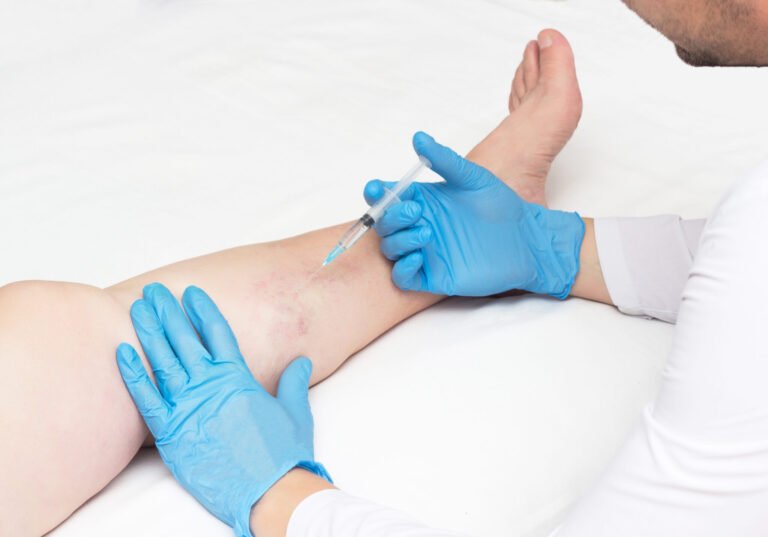Vascular specialists address issues related to the veins in the legs, where conditions like varicose and spider veins are common. They offer treatment to alleviate the discomfort, agony, or concerns about appearance brought on by vein disorders. Here are some frequently asked questions about vein care:
What Are Varicose and Spider Veins?
Varicose veins are enlarged, twisted veins that appear on the legs and ankles and occur when the valves weaken, allowing blood to flow backward and pool. When veins become large, you might experience soreness and a heavy feeling in the legs when you stand for a long period of time. Genetics, aging, and pregnancy are examples of risk factors that can increase the likelihood of developing varicose veins. As for spider veins, they are smaller and may appear on the surface of the skin of the face or legs. Differing from varicose veins, spider veins are more of a cosmetic issue and don’t often cause any discomfort or inflammation.
Are Varicose Veins Dangerous?
Varicose veins aren’t usually harmful, but they can cause discomfort, swelling, and aching if left untreated. In serious cases, this health condition may cause blood clots, which can block blood flow in the veins. Varicose veins may contribute to open sores or painful ulcers that heal slowly, making you uncomfortable. When there’s excessive swelling, veins close to the skin’s surface can potentially burst, leading to bleeding. Due to long-term inflammation and inadequate blood flow, the skin around the varicose veins could become hard, tight, or discolored.
Should I See a Doctor About My Veins?
If you experience leg cramps and restlessness due to poor blood circulation, it is advisable to see a vein care specialist for assistance. You might also need medical attention if you notice discoloration, thinning, or dryness in the skin around varicose veins. Itching, rashes, or the development of open sores on your legs are other signs to see a doctor to prevent an advanced venous disease. If your legs feel swollen, heavy, or achy, it could be a sign that your veins are not functioning properly and require treatment. When you notice other symptoms like tingling and numbness, it’s helpful to consult a healthcare provider.
Are Treatments Available for Varicose Veins?
Vein specialists use different types of treatments, including laser therapy which utilizes focused light energy to collapse enlarged veins. They also employ sclerotherapy by injecting a solution directly into the veins to help the lining close and discoloration to fade slowly. To seal the vein properly, experts may use radiofrequency ablation, applying radiofrequency energy to generate heat. A specialist targets the affected veins and redirects blood flow to healthier veins during an ablation procedure. This process helps get rid of symptoms associated with varicose veins, such as pain, swelling, and heaviness. After treatment, a doctor may suggest that you wear compression stockings to support the veins and prevent blood from pooling.
Consult a Vein Care Specialist
Varicose veins might indicate underlying health issues, but you can see a vein care specialist for diagnosis and treatment. This professional examines your legs and asks you about different symptoms to recommend the right treatment. To improve your vascular health, schedule an appointment today to see a healthcare provider.
